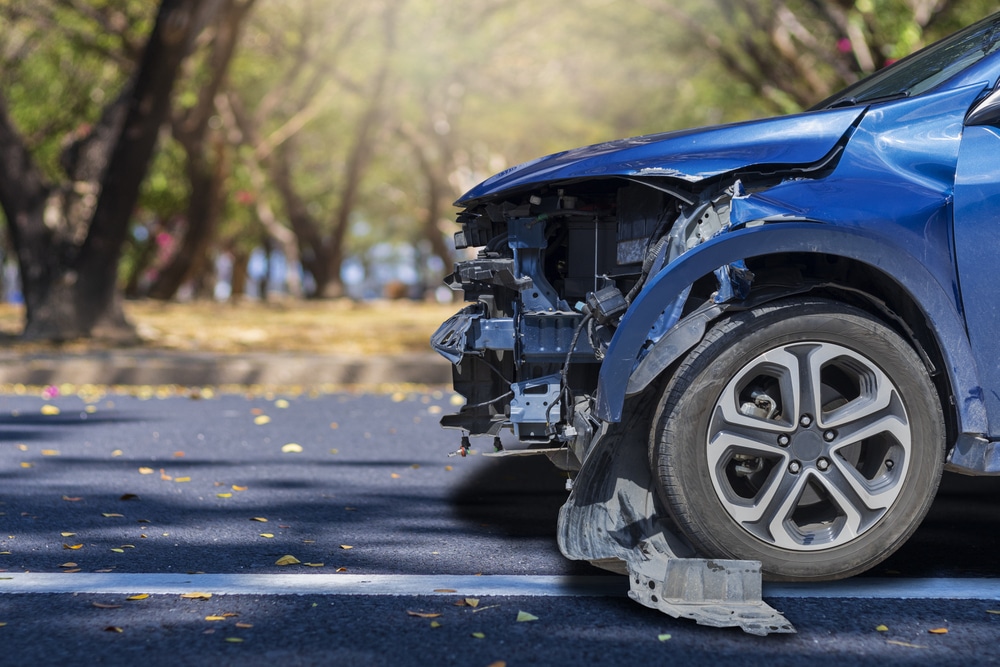After a car accident in Kansas, your first thoughts are likely to be about recovery from your injuries. Before too long, however, thoughts should turn to holding the at-fault party liable and claiming full and fair compensation for your injuries.
The statute of limitations on personal injury claims in Kansas means that you should protect your legal rights by filing a claim as soon as possible after a car accident.
Here is what you need to know about how to claim compensation promptly and effectively in the Topeka area.
How long after an accident can I sue for my injuries in Kansas?
The statute of limitations is the legal “time limit” for a complainant to file a lawsuit against a defendant. This varies for different types of legal action.
In Kansas, the statute of limitations for car accident injuries is generally two years from the date of the accident.
After the time limit expires, individuals generally waive the right to take legal action and may not be able to recover compensation for their accident injuries—but it is essential to consult with a qualified personal injury lawyer before dismissing claims because there are some notable exceptions for minors and legally incapacitated persons.
Exceptions to the statute of limitations rule in Kansas
The two-year statute of limitations rule in Kansas may be extended in some of the following circumstances:
- The injured party is a minor, in which case the statute of limitations is one year following the minor’s 18th birthday, or eight years following the date of their car accident, whichever occurs first.
- The injured party is legally incapacitated, the statute of limitations may be extended until one year after the date that person’s incapacity is removed.
Types of damages recoverable after an accident in Kansas
Car accident injuries caused by a third party are eligible for both economic and non-economic damages in Kansas—but the precise compensation you receive will depend largely on the circumstances of the accident, the extent of your injuries, and the skills of your personal injury lawyer.
Economic damages include:
- Medical expenses: emergency treatment, surgery, rehabilitation, prescription drugs, and any future medical costs resulting from the accident.
- Property damage: damage to your vehicle and any other property damaged in the
- Lost wages: compensation related to lost wages or reduced earning capacity in the present or future.
Non-economic damages relate to the pain and suffering caused by the accident injuries, as well as to the loss of quality of life, loss of companionship, emotional distress, disfigurement, etc.
These damages are more challenging to assign a dollar figure to but often amount to more than the economic losses.
What is the maximum car accident injury compensation in Kansas?
In Kansas, no limits are imposed on economic or non-economic losses for vehicle accident injuries.
Is Kansas a no-fault state?
Kansas is one of several states in the U.S. to operate a no-fault car insurance system.
This means that a driver’s car insurance is primarily responsible for paying damages if the driver is injured in a car accident while driving his/her own car in the state. Under Kansas law, every car insurance policy sold must include no-fault benefits, which are known as Personal Injury Protection (PIP).
PIP benefits include a minimum of:
- $4,500 for medical expenses per person
- $900 per month for one year of lost income due to injuries/disability due to an accident
- $25 per day for in-home services, such as cleaning and childcare
- $2,000 for funeral and burial expenses
- $4,500 for occupational rehabilitation expenses
At-fault injury claims in Kansas
PIP benefits help to keep many personal injury cases involving car accidents out of the Kansas court system, but some accident injuries are not adequately covered by the benefits. In such cases, the option remains to sue the at-fault driver.
With a lawsuit, drivers may be able to claim not only for economic damages such as medical expenses and lost wages, but also for pain and suffering. A few ground rules must be satisfied before filing a personal injury lawsuit in Kansas—including meeting at least one of the following eligibility criteria:
- Medical expenses of at least $2,000
- A fracture to a weight-bearing bone
- Loss of a body member
- Permanent loss of a body function
- Permanent scarring or disfigurement
- Permanent injuries (within reasonable medical probability)
- A displaced, comminuted, compression or compound fracture
- Wrongful death
If the lawsuit is successful, the PIP insurance benefits will need to be refunded through a process known as subrogation (in most circumstances).
If the at-fault driver has no insurance or insufficient insurance coverage to meet the full amount of the claim, drivers might receive the remaining balance of damages from their insurance provider under an uninsured or underinsured motorist policy.
Before deciding what to do after suffering car accident injuries in Kansas, it is best to consult with a personal injury lawyer to consider all your options.
What are the contributory negligence rules in Kansas?
Kansas follows a comparative negligence rule when it comes to apportioning fault for car accident claims.
Under these rules, a driver who is less than 50 percent at fault for an accident can sue the other driver(s) for damages. However, their compensation will be reduced in proportion to their level of fault.
For instance, if a driver is awarded $100,000 in compensation but is 30 percent at fault for the accident, the final amount received will be $70,000.
Drivers deemed to be 50 percent or more at fault for an accident are not entitled to receive compensation from the at fault party, file a lawsuit against the other driver(s) or receive a jury award in Kansas.
How can a car accident lawyer help you?
Car accident cases can be complex in Kansas, especially with the no-fault and comparative negligence rules.
Proving liability, eligibility to file a lawsuit, and negotiating a fair payout from insurance companies is challenging and best arranged with the help of an experienced car accident lawyer with a profound understanding of the claims system in Kansas.
If you or a loved one has been injured in a car accident in Topeka, speak to a car accident lawyer at Irigonegaray & Revenaugh during a free case evaluation. We will advise you of your legal options and assess how best to claim the compensation you deserve for your accident injuries.
Accident Injury Articles
Should I Seek Medical Attention After a Car Accident Even If I Feel Fine?
If you feel fine after a car accident, you’re [...]
How An Attorney Can Help With Your Kansas Car Accident Claim
In the aftermath of a car accident in Kansas, [...]



